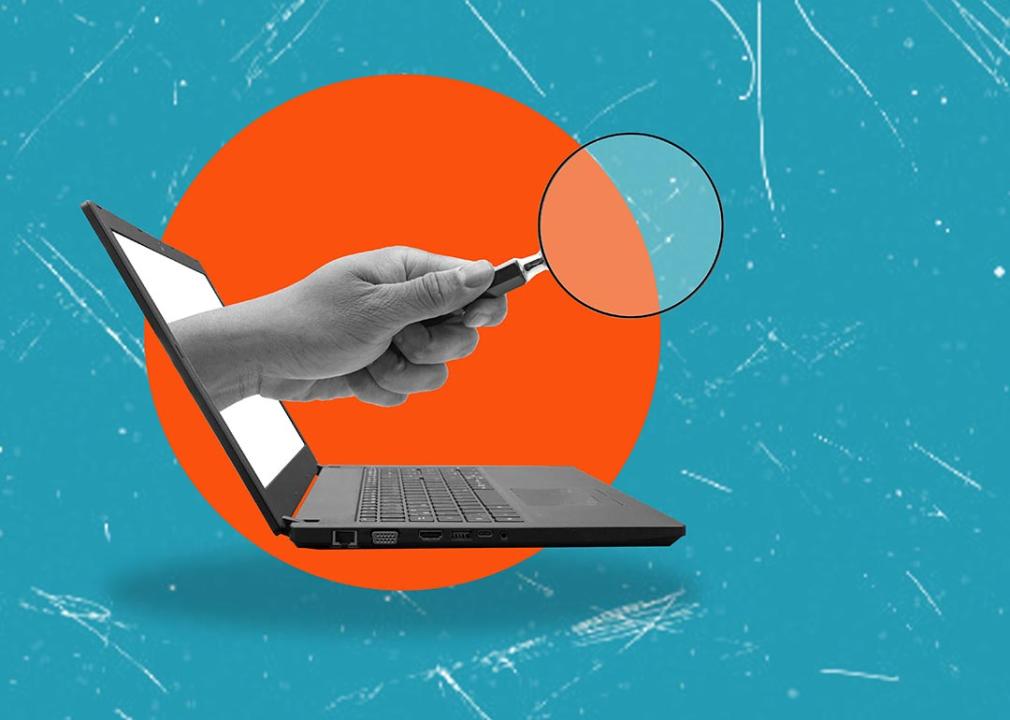Money.com offers tips and information to consider when conducting a background check on yourself.
This item is available in full to subscribers.
We have recently launched a new and improved website. To continue reading, you will need to either log into your subscriber account, or purchase a new subscription.
If you are a current print subscriber, you can set up a free website account by clicking here.
Otherwise, click here to view your options for subscribing.
Please log in to continue |
|

Conducting a background check on yourself isn't always necessary if you're concerned about identity theft, but there are situations when it can be a good idea.
Identity theft has been rampant since 2020. The Federal Trade Commission (FTC) has now received more than a million reports of ID theft for the fourth consecutive year, and the levels are about 60% higher than before the pandemic.
While a straightforward credit report can reveal credit card fraud — the most prevalent form of identity theft — background checks can help you figure out what's going on in more rare cases of criminal identity theft or employment identity theft.
When you conduct a self background check, the idea is to see what a potential employer or landlord would see, like criminal records, address history and previous jobs. If there are mistakes, that's an indication that you may be a victim of identity theft.
"You just have to keep in mind that it's just a tool or indicator that could be helpful," says attorney Lester Rosen, founder of Employment Screening Resources. "But someone could have used your ID pretty easily in a way that fell through the cracks."
Money.com compiled tips on what to expect when conducting a background check..
By running a background check on yourself with an online service, you can get access to employment records that may indicate if someone has been illegally using your Social Security number to earn income. More than 30,000 Americans reported this kind of identity theft to the FTC last year — a more than 50% jump from 2019.
That activity would not show up on a credit report but could show up on a background check that includes employment records. (Alternatively, to investigate this on your own, you can get a free copy of your Social Security Statement, which shows your earnings history.)
There are also rare cases when stolen identities are illegally used for police or court records, sometimes unbeknownst to the individual. A background check could help if you suspect you've been a victim of this type of crime.
"Background checks could be useful in cases of criminal identity theft where someone gives another individual's personal identifying information at the time that they're arrested, and then the arrest record or the warrant is issued in the victim's name, not the person who actually committed the crime," says Axton Betz-Hamilton, an identity theft expert and an assistant professor at South Dakota State University.
Background check services can perform database searches and scan criminal records from all over the country to help you find out if your name appears in any criminal records. These services generally charge fees, and they're only worth using for identity theft purposes if you suspect something serious.
"Some of those sites, you sign up and you suddenly become a subscription member, and then you have to then try and cancel that subscription," Rosen says. "You have to be a little bit careful about which site you use."
Keep in mind that these online services aren't comprehensive, considering that there are thousands of cities and counties and many types of records, including police records, sheriff's records and court records.
"There's no one surefire tool where for one price you can go to one place and definitely say, 'Okay, no one has used my name for a criminal record,'" Rosen says.
There are background checks for many different purposes, ranging from firearms permits to government employment to banking, explains Adam Levin, host of the podcast "What the Hack with Adam Levin." Each type of background check involves different records, he notes.
Beyond the type of background check that you can run online, identity theft can also sometimes be uncovered when employers do background checks on new hires or when landlords are screening rental applicants, experts say.
Even though employers and landlords only have limited access to credit profiles for their background checks, it's still possible for identity theft to negatively impact the results of these inquiries.
"If a rental application is rejected or you get turned down for employment in the final stages of an interview process, check your credit report to see if anything on there may be the culprit," Levin says. "If all else fails: Ask why your application failed."
Lastly, Rosen adds that there are rare situations when an employment background check uncovers a criminal report and it turns out the report was a result of identity theft.
"Once in a while, you do see a situation where somebody is truly surprised to find out that their identity has been used for some sort of criminal matter," he says. "It's rare, but devastating obviously."
However, if you suspect you're one of the roughly 400,000 people a year whose identity was used to open new credit accounts, paying for a background check is typically overkill.
Betz-Hamilton says it's more important to pull a copy of your credit report. You can get free copies of your reports, and they will show all of the credit accounts under your name as well as the balances. In addition to checking your credit report, experts say you can use credit monitoring programs, some of which are free, to investigate suspicious activity. You should also follow the FTC's guidance on the steps to take if you're dealing with identity theft.